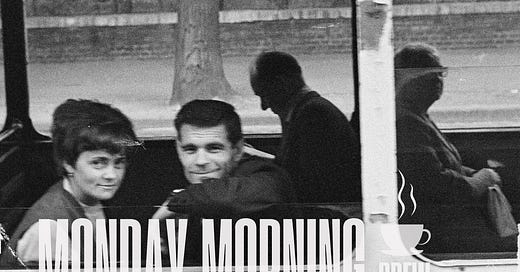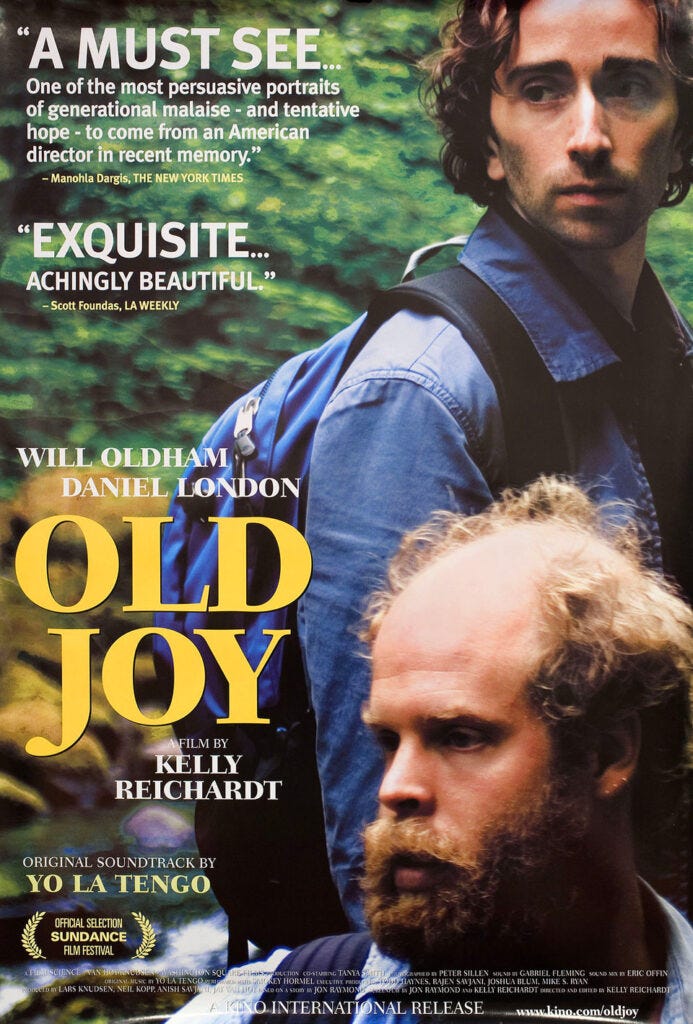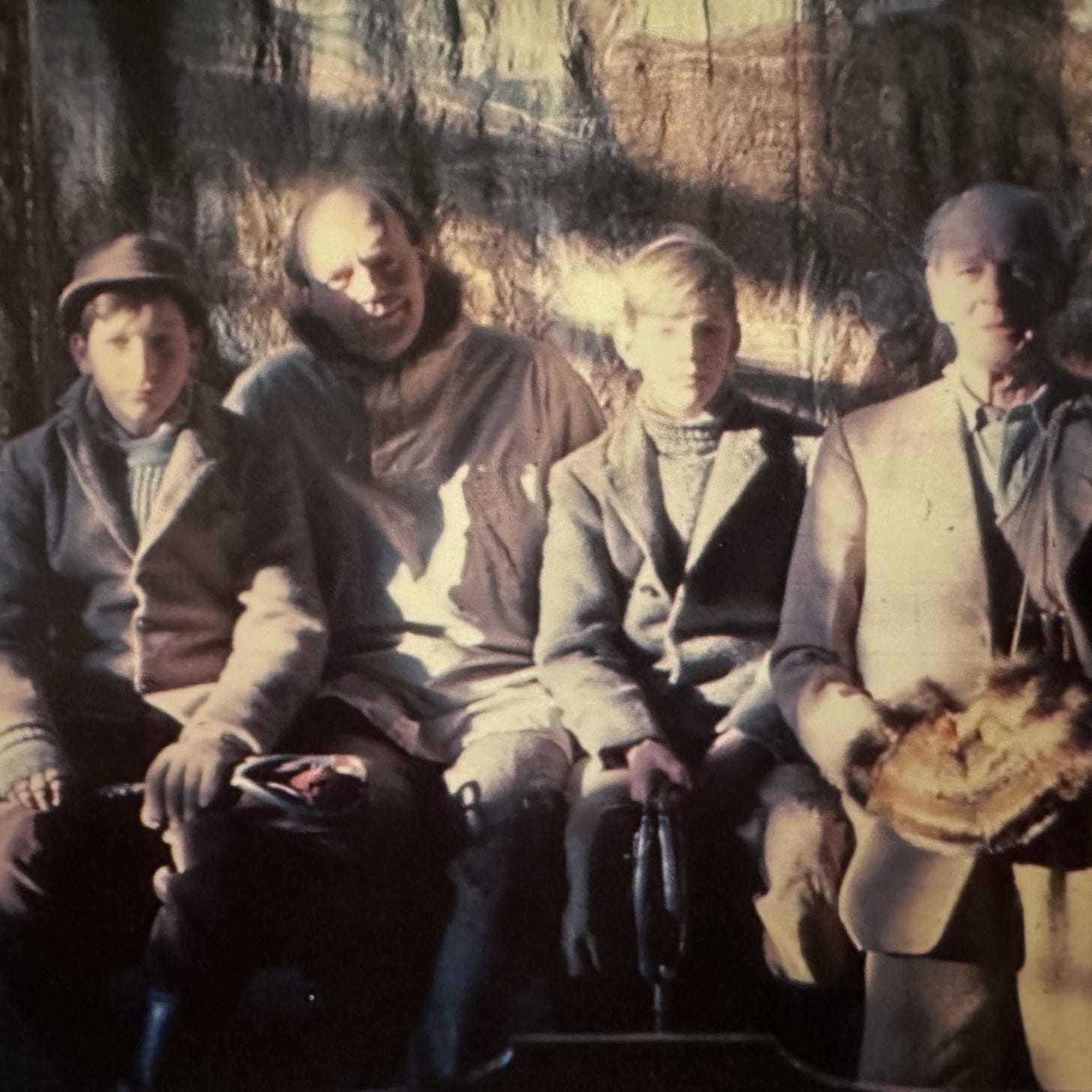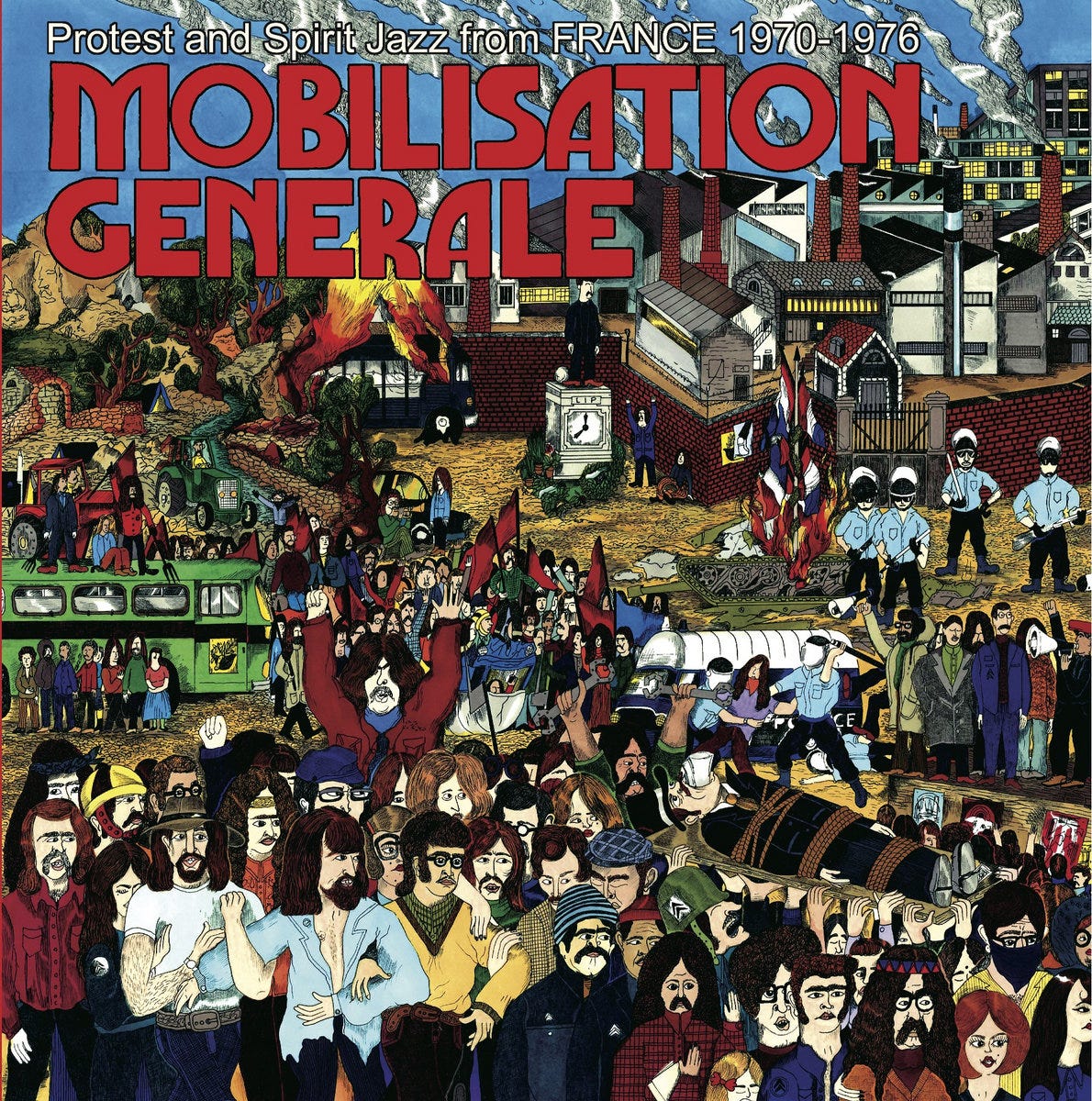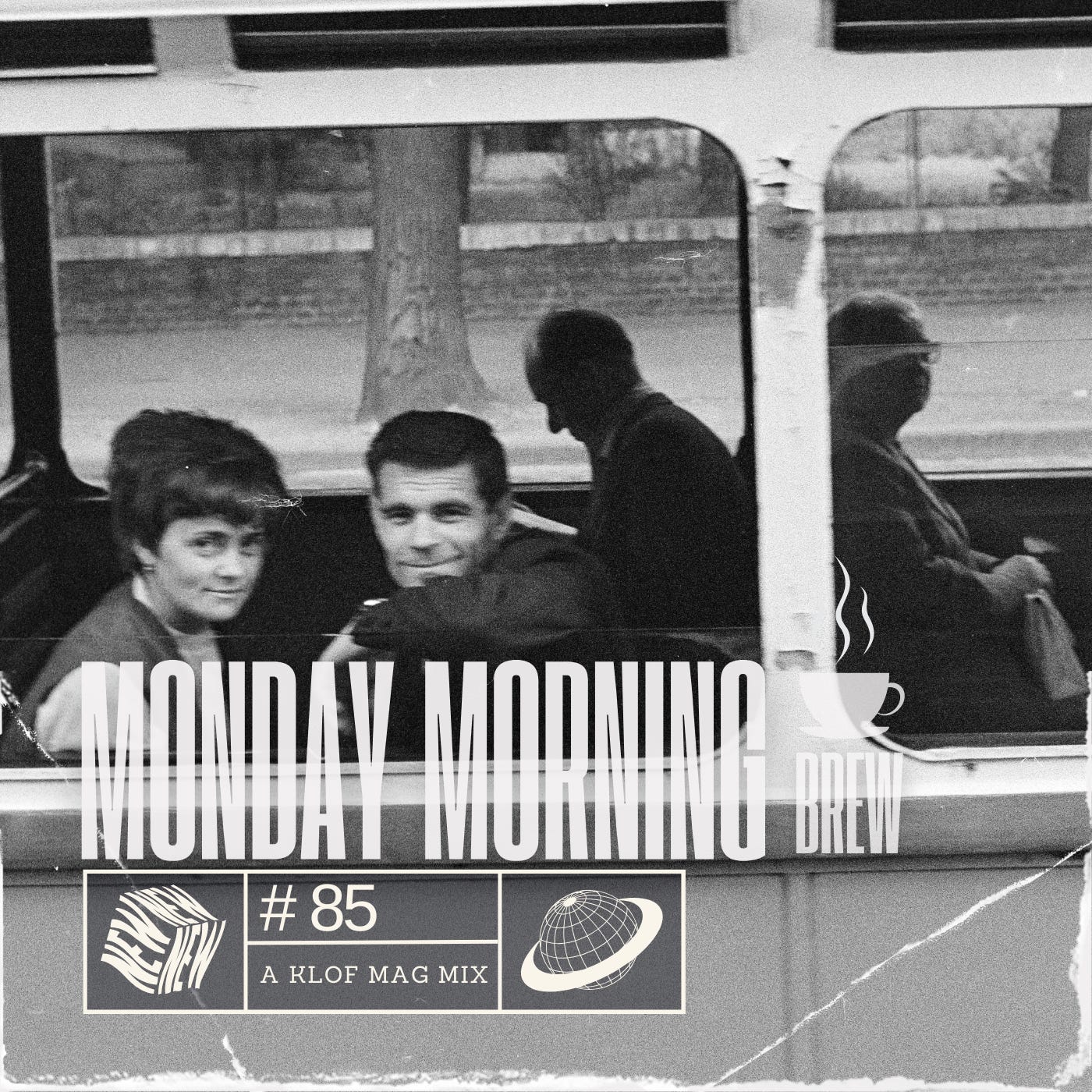The Monday Morning Brew #85
Another Brew to start the week ft. The Burning Hell, Yo La Tengo, James P Honey, Kamel Rauf Nagati (a.k.a RK Nagati), The Cosmic Tones Research Trio and lots more.
Enjoy another new Monday Morning Brew playlist (links further down this page) that kicks off with The Burning Hell’s new single "Bottle of Chianti, Cheese and Charcuterie Board", their first digital single from their upcoming album “Ghost Palace” - an off-kilter synth and double-bass hip-shaker about the ways we reduce our lives to the fragments of bourgeois luxury that we can’t take with us when we go.
Also featured:
A track from Yo La Tengo’s soundtrack (released on vinyl via Mississippi Records) to Kelly Reichardt’s understated 2006 classic “Old Joy,” which featured Will Oldham and Daniel London.
Mississippi Records: Born out of a years-long friendship between the band and Reichardt, the music of Old Joy stretches out, running parallel to the gestures, themes, and imagery in the film. Not dissimilar to an overcast Oregon sky, Yo La Tengo create an arresting and suspended air in which the film’s characters find themselves; connected, but apart. Simultaneously coming together and drifting away at the same time.
Also released on Mississippi Records is The Cosmic Tones Research Trio’s All is Sound - “Portland's finest practitioners of Great Black Music offering to the planet! All is Sound could not be a more apt title for this. Through saxophone, cello, piano, and flutes The Cosmic Tones Research Trio created a truly beautiful record. All Is Sound breaks new ground. At its heart, it's healing/meditation music, but the Gospel and Blues roots are in there too...as well as hints of forward-looking Spiritual jazz. As sincere a record as you could ever hope for. Music is indeed the healing force of the universe.”
And 'citrus peel', a full band song from James P Honey and the second of six he’ll be sharing over the coming months.
it is a track all about the passing of time, of change, beginnings and ends.
He was the subject of a fascinating short documentary directed by Pascal Boudet, which, considering it is just over 8 minutes long, paints a very vivid portrait of Honey, from what drives him to how he soaks up conversations and details like a sponge while touring which then feed into his non-conformist poetry and prose…
Tunisian singer Kamel Rauf Nagati (a.k.a RK Nagati) and a track from the compilation album Mobilisation Générale: Protest & Spirit Jazz from France 1970-1976…It is impossible not to succumb to the charms of the electrified harpsichord, the Coltrane-style saxophone solos, as well as those of Nagati's relentless rhythm and easy-going singing.
Compilation Album Notes:
1968. France, Incorporated. The entire building was being consumed by flames and was slowly collapsing. Nothing would survive. Out of the rubble of the old world jumped the children of Marx and Coca-Cola, ripping the white and blue stripes off the French flag. Yet, the socialist revolution was more mythic than real and music did nothing to mitigate people’s behavior. It was time for innovation.
While singles from the Stones, Who, Kinks and MC5 provided an incendiary soundtrack for the revolution, it was Black Americans who truly blew the world from its foundations in the 60s. Ornette Coleman, Cecil Taylor, Eric Dolphy, Albert Ayler and Archie Shepp left behind the jazz of their fathers’ generation, liberating the notes, trashing the structures, diving headfirst into furious improvisations, inventing a new land without boundaries – neither spiritual nor political. Free jazz endowed the saxophone with the power to destroy the established order.
In 1969, the Art Ensemble of Chicago arrived at the Théâtre du Vieux Colombier in Paris and a new fuse was lit. Their multi-instrumentalism made use of a varied multiplicity of “little instruments” (including bicycle bells, wind chimes, steel drums, vibraphone and djembe: they left no stone unturned), which they employed according to their inspirations. The group’s stage appearance shocked as well. They wore boubous (traditional African robes) and war paint to venerate the power of their free, hypnotic music, directly linked to their African roots. They were predestined to meet up with the Saravah record label (founded in 1965 by Pierre Barouh), already at the vanguard of as-yet unnamed world music. Brigitte Fontaine’s album Comme à la radio, recorded in 1970 after a series of concerts at the Théâtre du Vieux Colombier, substantiated the union of this heiress to the poetic and politically committed chanson française (Magny, Ferré, Barbara) with the Art Ensemble of Chicago’s voodoo jazz and the Arab tradition perpetuated by her companion Areski Belkacem.
A UFO had landed on the turntables of French teens who were discovering underground culture via publications like Actuel, Libération, Charlie Hebdo, Rock & Folk and a vigorous free press. It was a generation ready for any and all combats: alongside farmers on the Larzac plateau and the Lip factory workers; fighting the Creys-Malville nuclear plant, the Vietnam War, the death penalty, discrimination against women, gays and immigrants. For 20-year-olds in the early 1970s, making music was a political act; they grabbed a microphone to advance a cause, not to become rock stars. While the price of oil skyrocketed and Pompidou went overboard, building horrible concrete apartment buildings for public housing and “adapting the city for the automobile,” some took refuge in the countryside. Alternative communities formed all across France, giving rise to groups (or rather, collectives) with open-minded structures, cheerfully mixing music, theatrical happenings and agitprop, along with a good dose of acid. Projects bordering on the ridiculous were often tolerated (progressive rock was one of the primary banalities the era produced), while those who followed the route paved by spiritual jazz often ended up elsewhere. The vehemence (if not grandiloquence) of their declarations was carried and transcended by the finesse and brilliance of their musicianship. For the “straight” France of Claude François, it was something from another world. Simultaneously spatial, pastoral and tribal, the tracks in this collection represent an ideal intersection between a sort of psychedelic legacy, the space jazz of Sun Ra and Afro Beat (then being created by Fela in Lagos): they are as much incantations (often driven by the spoken word), war cries or poems as they are polemics.
1978. Giscard was at the helm. Punk and disco were busily decapitating the last remaining hippies. People’s blood was still boiling, but it was already too late. The war was over, lost without anyone noticing. Nevertheless, people still tilted at windmills or talked tough in dead-end struggles; a dream is not so far from a nightmare. We knew that an enchanted era had ended, the hope for a brighter future was now behind us and that we would leave behind nothing for our children but a few records. Indeed, ghosts may still crackle from our speakers as the 45 spins and Brigitte Fontaine asks Areski: “Hé mais je pense à un truc, on ne va pas mourir dans une minute ?” (Hey, I was just thinking, aren’t we going to die in a minute?)
All this and so much more…Enjoy the playlist below:
Monday Morning Brew Listen Links:
Keep reading with a 7-day free trial
Subscribe to KLOF Magazine Newsletter to keep reading this post and get 7 days of free access to the full post archives.

